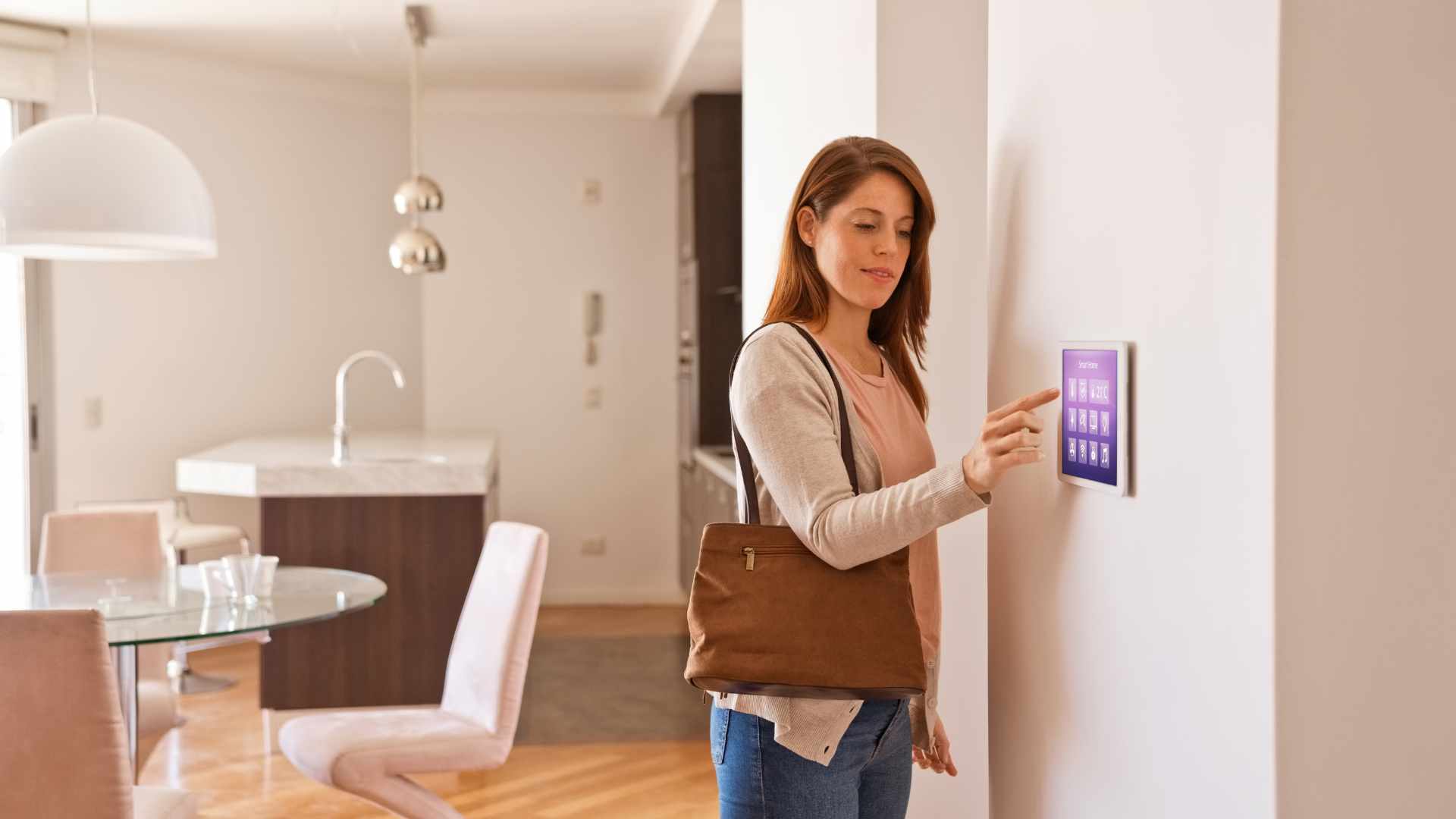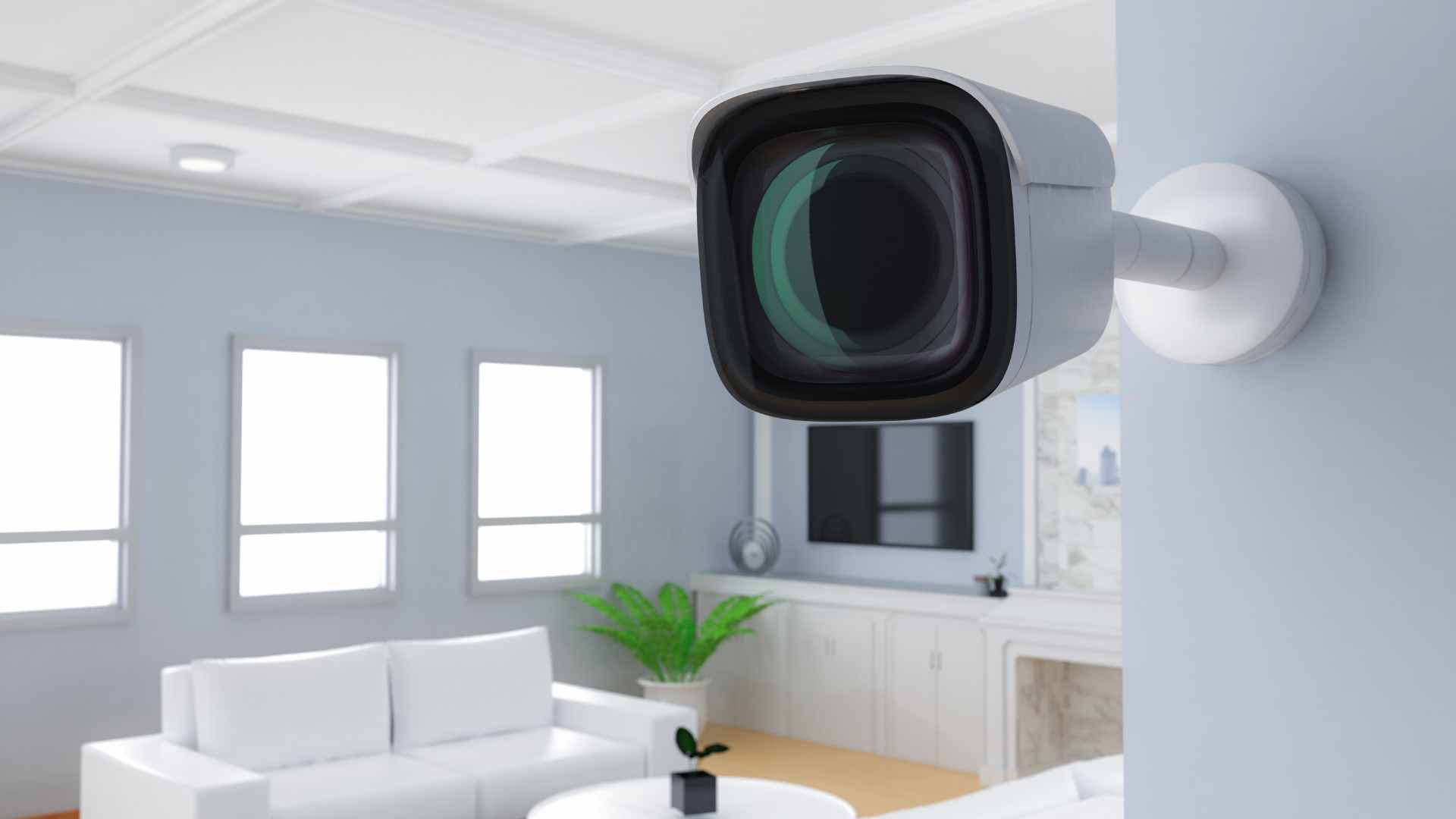With an array of home security options available, finding the most effective type of home security can be daunting. This blog aims to guide you through the various home security systems, highlighting their features, benefits, and how they can be tailored to meet your needs. Whether you are considering traditional alarm systems, modern smart home integrations, or comprehensive surveillance solutions, understanding the strengths and limitations of each type will help you make an informed decision.
Best Types of Home Security Systems
Traditional Alarm Systems
Traditional alarm systems remain a cornerstone of home security, providing reliable protection against intrusions and emergencies. These systems are designed to alert homeowners and, in many cases, local authorities when a security breach occurs, ensuring swift responses to potential threats.
Benefits of Traditional Alarm Systems
- Deterrence: An alarm system can deter potential burglars from attempting a break-in.
- Immediate Alerts: In the event of a security breach, traditional alarm systems provide immediate audible alerts, notifying homeowners and neighbours of the intrusion. Advent Security notes that these alarms can also be configured to notify local law enforcement or a monitoring service.
- Cost-Effectiveness: Traditional alarm systems often have a lower initial cost than more advanced intelligent systems, making them accessible to people with a range of budgets.
- Simplicity: These systems are typically easy to use, with straightforward keypads and control panels that do not require advanced technical knowledge.
Limitations of Traditional Alarm Systems
- Limited Integration: Traditional alarm systems may offer a different level of integration with other smart home devices than modern systems. This can limit their functionality and the ability to create a comprehensive security ecosystem.
- False Alarms: These systems can sometimes generate false alarms due to sensor malfunctions or user errors, which can be inconvenient and may result in fines from local authorities for repeated false alerts.
- Lack of Remote Access: Unlike modern innovative systems, traditional alarm systems may not offer remote monitoring and control capabilities, limiting the ability to manage your home security from a distance.
Smart Home Security Systems
Smart home security systems represent the cutting edge in home protection, combining advanced technology with user-friendly features to create a secure, convenient, and integrated home environment.
Benefits of Smart Home Security Systems
- Enhanced Security: Integrating various sensors and cameras provides a comprehensive security solution that covers all potential entry points and monitors activity within the home.
- Convenience and Automation: Smart home systems automate various tasks, making daily routines easier. For instance, SNE Connections highlights how access control systems can automate door locking and unlocking, ensuring that only authorised individuals can enter.
- Energy Efficiency: Integrating security systems with other smart home devices like thermostats and lights can help reduce energy consumption by adjusting settings based on your security status and occupancy.
- Customisation and Scalability: Smart home security systems are highly customisable, allowing you to add new devices and features as needed. This scalability makes them suitable for both small apartments and large homes.
Considerations When Choosing a Smart Home Security System
- Compatibility: Ensure that the system is compatible with your existing smart home devices and platforms, such as Amazon Alexa, Google Assistant, or Apple HomeKit.
- Installation: Determine whether you prefer a DIY installation or a professional setup. While DIY systems offer ease of installation and lower costs, professionally installed systems like Vivint Smart Home provide expert setup and comprehensive support.
- Monitoring Options: Decide whether you need professional monitoring services or if self-monitoring will suffice. Professional monitoring provides 24/7 surveillance and emergency response, which can be crucial for some homeowners.
- Cost: Evaluate the system’s upfront costs and the ongoing expenses for monitoring and maintenance. Systems offer affordable options with no long-term contracts, while others like ADT Command have higher initial and monthly costs but offer extensive services and support.
Advanced Features to Look For
- High-Definition Cameras: Look for systems with 1080p or higher resolution cameras for clear video footage.
- Environmental Sensors: These sensors detect smoke, carbon monoxide, water leaks, and temperature changes, adding another layer of protection.
- Voice Control: Systems that integrate with voice assistants like Amazon Alexa and Google Assistant allow you to control your security system using voice commands.
- Battery and Cellular Backup: Ensure the system has backup options to stay operational during power outages or internet disruptions.
CCTV And Surveillance Systems
CCTV (Closed-Circuit Television) and surveillance systems have become indispensable tools for enhancing security in residential and commercial settings. These systems provide continuous monitoring, deter potential intruders, and offer valuable evidence in the event of a security breach. Based on insights from Proconnect Solutions, Little Snitch, Optical Solutions Australia, and Swann, here’s an in-depth look at the features, benefits, and considerations of CCTV and surveillance systems.
Benefits of CCTV and Surveillance Systems
Visible security cameras act as a deterrent to potential intruders. Swann notes that properties with visible security measures are three times less likely to be broken into. CCTV footage provides valuable evidence in the event of a crime or dispute, aiding investigations and supporting legal proceedings. Surveillance systems allow for real-time monitoring and management of premises.
Types of CCTV Systems
These systems use physical cables to transmit video and audio signals. They are generally more reliable and offer higher video quality. Wired systems, including DVR (Digital Video Recorder) and NVR (Network Video Recorder) options, are robust and feature-rich.
Wireless CCTV systems transmit data using Wi-Fi, offering greater flexibility in camera placement. These systems are easier to install but may be subject to interference and require strong Wi-Fi signals. These cameras are ideal for locations where running power cables is impractical. They are easy to install and can be placed anywhere, but require regular battery charging or replacement.
Conclusion
In conclusion, the most effective types of home security systems are those that offer a comprehensive, layered approach to protection. Combining various components such as motion sensors, video surveillance, smart locks, and environmental monitoring ensures that all potential vulnerabilities are addressed. Motion sensors and door/window sensors provide immediate alerts to unauthorized entry, while video surveillance allows for real-time monitoring and evidence collection. Smart locks add an extra layer of security by controlling access points, and environmental sensors protect against hazards like fire and carbon monoxide.
The integration of smart technology enhances the effectiveness of these systems by enabling remote monitoring and control. With smartphone apps, homeowners can receive instant alerts, view live camera feeds, and even arm or disarm their systems from anywhere in the world. This level of connectivity not only increases security but also offers unparalleled convenience and peace of mind. Professional monitoring services further amplify security by ensuring that any alarms are promptly addressed by trained personnel, providing a swift response in emergencies.
Ultimately, the key to effective home security lies in choosing a system that meets your specific needs and lifestyle. Whether you opt for a fully integrated smart system or a more traditional setup with professional monitoring, the goal is to create a safe environment for your family and property. By investing in a robust security solution, you can deter potential intruders, protect valuable assets, and enjoy the peace of mind that comes from knowing your home is secure.
FAQs About Home Security
Why Is Home Security Important In Today’s World?
Home security is essential to protect your Family and possessions from intrusions, theft, and other emergencies, ensuring peace of mind in an increasingly fast-paced and uncertain world.
What Are The Main Types Of Home Security Systems Available?
The main types include traditional alarm systems, CCTV and surveillance systems, smart home security systems, and personal emergency devices.
What Factors Should You Consider When Choosing A Home Security System?
Consider factors such as your home’s specific security needs, the value of items needing protection, compatibility with smart home devices, and whether you need professional monitoring services.
How Do Traditional Alarm Systems Work?
Traditional alarm systems use sensors on doors and windows to detect intrusions and trigger audible alarms. They can be wired or wireless, including motion detectors and window sensors.
What Are The Benefits Of Traditional Alarm Systems?
They provide immediate alerts, are cost-effective, are easy to use, and can deter potential burglars with visible alarm components like sirens and control panels.


